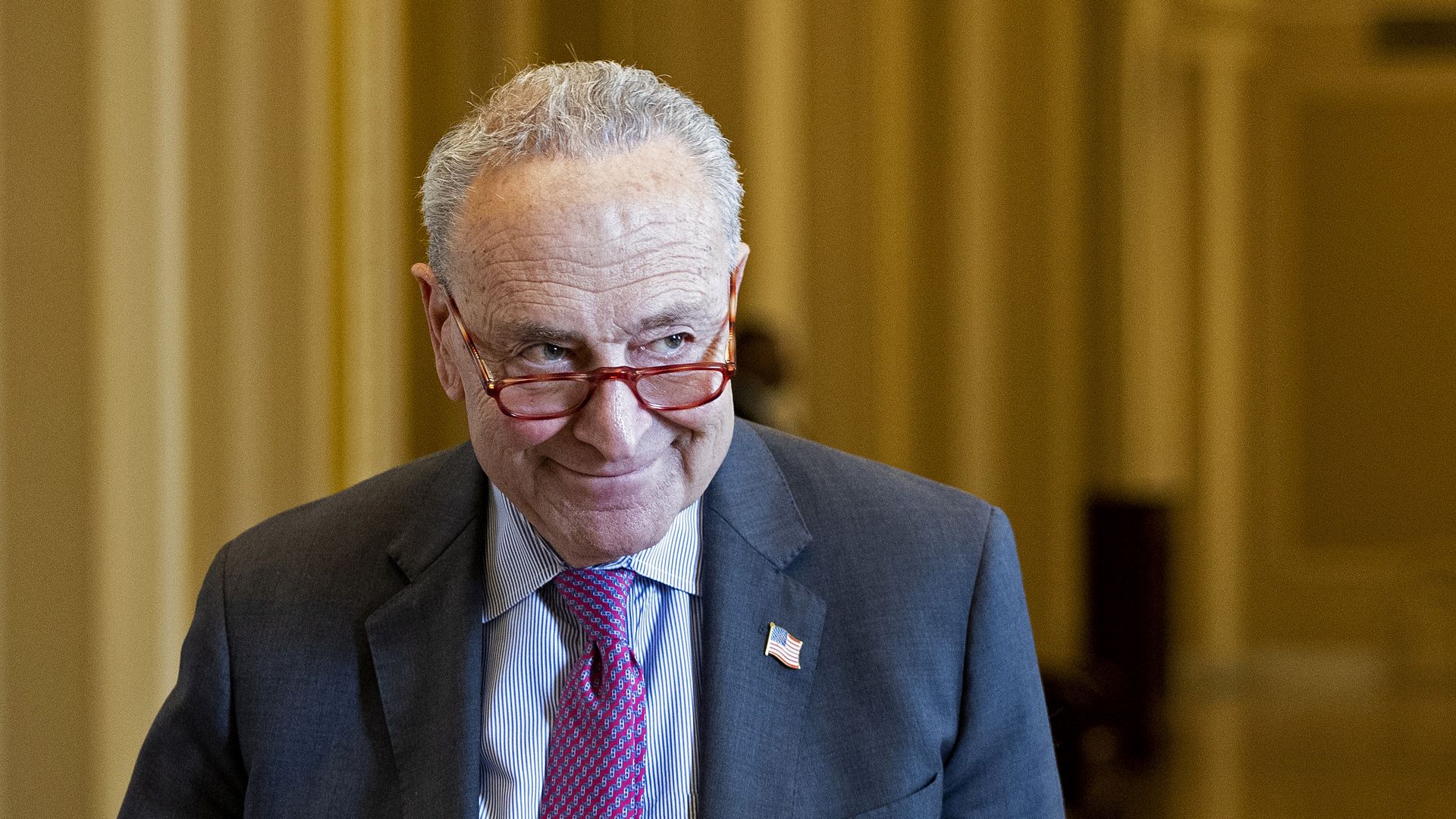
Senate votes to repeal Iraq War authorization 20 years after invasion. Here's what that means.
Senate Majority Leader Chuck Schumer arrives to the Capitol Building on March 27. Photo: Anna Moneymaker/Getty Images
The Senate on Wednesday voted 66-30 to repeal authorizations for the use of force in Iraq, more than twenty years after the U.S. invasion of the country.
Why it matters: The historic bipartisan vote moves to reassert Congress' power over the use of military force abroad.
- The legislation will now go to the House where it's unclear if Republicans will take it up.
- The last time an authorization of military force was repealed was in 1974.
What was the 2002 AUMF?
Congress' passage of the 2002 Authorization for the Use of Military Force (AUMF) gave President George W. Bush the authority to invade Iraq and topple the government of Saddam Hussein.
- Its repeal prevents U.S. presidents from conducting attacks in Iraq without the prior approval of Congress.
- The bill also repeals an AUMF from 1991 that authorized the Gulf War.
Why did Congress repeal the AUMF
Previous efforts to repeal the 2002 AUMF have not succeeded, but lawmakers in favor of the effort have argued that the authorization is outdated and could be used to justify more far-reaching military actions.
- The resolution was used during the Trump administration as recently as 2020, in the killing of Iranian Gen. Qassem Soleimani.
- During the Obama administration, the 2002 AUMF was used to justify airstrikes against the Islamic State in Iraq and Syria.
- A resolution to repeal the 2002 AUMF was passed by the House in 2021.
- The Biden administration has said it supports the effort to repeal the 1991 and 2002 AUMFs.
What to watch in Congress
Repeal of the 2002 AUMF passed the Democratic-led House in 2021 with 49 Republicans supporting the measure.
- House Speaker Kevin McCarthy (R-Calif.) said last week that he would support the measure, as long as a separate authorization — the 2001 AUMF enacted after 9/11 — remains in place.
- "The United States, Iraq, the entire world has changed dramatically since 2002, and it's time the laws on the books catch up with those changes," Senate Majority Leader Chuck Schumer (D-N.Y.) said on the Senate floor Wednesday. "These AUMFs have outlived their use."
- However, Senate Minority Leader Mitch McConnell (R-Ky.) came out against the move, arguing Tuesday in a statement that, "our terrorist enemies aren’t sunsetting their war against us."
The 2001 AUMF, which authorizes the U.S. to target perpetrators of the 9/11 attacks, is viewed as a far more sweeping, blank-check resolution that has been cited for U.S. military activity all over the world.
- The 2001 AUMF is still in effect and there is no sign that it will be repealed by Congress in the near future.
Source: Read Full Article
